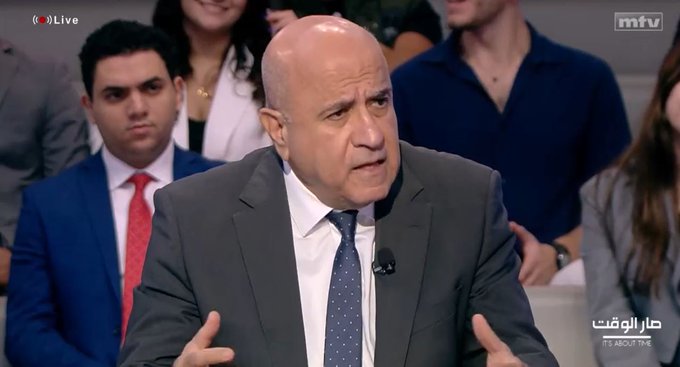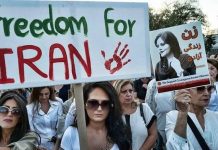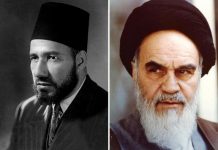مستقبل سوريا والتغيرات الجيوسياسية الكبرى
شارل الياس شرتوني/هنا بيروت/16 كانون الأول/2024
(ترجمة من الإنكليزية بحرية بواسطة الياس بجاني)
Syria’s Future and the Shifting Tectonics
Charles Elias Chartouni/This Is Beirut/December 16/2024
Syria’s political plight is at the crossroads between potential disintegration, renewed civil instabilities and eventual reconciliation, which helps overcome the bitter legacy of a long-haul civil war. The downfall of the Assad regime is of good omen since it sets an end to the excruciating travails bequeathed by a bloody dictatorship and its legacy of death camps, wanton violence and unleashed savagery. Aside from the fact that it has demonstrated its disinclination towards national reconciliation, political accommodation and normalization. This regime was deliberately doomed and was unlikely to be considered as a partner in any future peacemaking plans.
It was a misplaced expectation to bet on its willingness or ability to convert and pave the way for alternative courses. The new military and political dynamic ushered in by the Israeli counteroffensive strategy lies at the origin of this abrupt and transformative change. The Islamists who took over are facing multiple challenges related to their dependency towards Turkey and Qatar and their mutating political objectives, their ability to manage the inter-Islamist rivalries, deal with the post-war critical legacy, and tackle the thorny issues of civil concord and working governance in a country with no moral and political compasses whatsoever after one and a half decades of open-ended conflicts.
Their meteoric rise to power betrays the treacherous state of an unraveling country and its inability to rebuild itself away from the successive political patronages. The country’s de facto division unveils its fractured ethnopolitical landscape and the absence of a working political dialogue to address the protracted conflicts and their incidence on political stability and peace. The Islamist takeover has taken place at a time when the regional military and political dynamics were systematically overhauled after the defeat of the Iranian power projections throughout the Middle East and the remodeling of the geostrategic matrix actuated by the Israeli counteroffensive. The incremental political voids and the emerging political dynamics they elicited are incipient and call upon meticulous observation to identify their ongoing modulations.
The accommodating political statements of the HTS Islamist coalition reveal the difficulties awaiting them down the road now that the Alawite dictatorship has irreversibly withered away: the criminal legacy of the Islamic State is of no help and by no means instructive. Their internal differences are to be tackled first and foremost if they are to offer a stabilizing framework in a country that badly needs it. The challenges of political stability defy their ability to overcome their ideological mandates, stifling dependencies and readiness to engage in the monumental assignments of political reconciliation, reformed governance and international normalization.
They can never succeed in their undertaking unless they forswear their ideological blinders and strategic ballasts and open themselves to democratization and gradual liberalization. The very fact that Ahmad al-Shareh committed himself to normalization, political inclusiveness and institution building impels the launching of a consequential political dynamic. The rightly suspicious international community needs tangible proof to overcome its reservations and respond to the statement of intentions and its underlying subtexts.
The Islamist coalition has to expand into a pluralistic and inclusive partnership, regrouping the various aisles of the Syrian opposition, the religious tapestry and the Syrian diaspora. It must work on building an overarching national platform that prepares for a national convention to decide over the future of Syria. Any ideological diktat can turn forthrightly into nihilistic violence and outright Islamic totalitarianism. The accommodating political posture has to display its readiness to re-engage the critical questions of national reconciliation, transitional justice, reformed governance and international normalization beyond the ideological templates of Islamism, its ideological mandates and its imperial hubris if it is to deliver on whichever political promises it has made.
The credibility test is a prequel to any further engagement with the regional and international community. Otherwise, the Turkish and Qatari power politics, rather than being instrumental in addressing the pitfalls of a hazardous conflict, are likely to add to its destructive potential and restart the cycles of violence. The Islamist coalition is quite aware of the incoming challenges and knows how serious the questions of institutional engineering are, how dire the issues of destroyed infrastructures, urban and rural settlements, massive displacement and return of the displaced are, how much war poverty there is and how important the assistance of the international community is in the post-war reconstruction. By and large, if the Islamists are going to fall back on their old playbook, Syria is invariably doomed and retreating behind the iron walls erected by the late bloody dictatorship and its Islamist heirs.
They should avoid the temptation of an Islamic dictatorship, learn the hard lessons of their failed dystopia and reconsider their political priorities on the basis of a pragmatic agenda mandated by the tragic conditions bequeathed by the criminal dictatorship and its nemeses, the destructive war and the unresolved questions of civil peace and systemic reforms. HTS has to realize that the cycles of violence have to end by giving up on its ideological delusions and turning away from their imperial fallacies. Rebuilding a country around working political and public policy choices is the shortest road to a normalized life earnestly sought by Syrians who have no other aspiration but to recover peace and rebuild their country and life conditions.
مستقبل سوريا والتغيرات الجيوسياسية الكبرى
شارل الياس شرتوني/هنا بيروت/16 كانون الأول/2024
(ترجمة من الإنكليزية بحرية بواسطة الياس بجاني)
تعيش سوريا في مفترق طرق بين احتمال التفكك، تجدّد الاضطرابات الأهلية، أو المصالحة النهائية التي يمكن أن تساعد على تجاوز الإرث المرير لحرب أهلية طويلة الأمد. إن سقوط نظام الأسد يُعدّ نذير خير، لأنه يُنهي معاناة شديدة خلّفتها دكتاتورية دموية مع إرث معسكرات الموت، والعنف العشوائي، والوحشية المطلقة. وبالإضافة إلى ذلك، فقد أثبت هذا النظام رفضه للمصالحة الوطنية، والتسوية السياسية، والتطبيع علماً أنه نظام محكوم بالفشل منذ البداية ولم يكن من الممكن اعتباره شريكاً في أي خطط مستقبلية لصنع السلام.
كانت التوقعات التي راهنت على استعداده أو قدرته للتحوّل وفتح الطريق أمام مسارات بديلة توقعات خاطئة، في حين أن الديناميكيات العسكرية والسياسية الجديدة التي أطلقتها الاستراتيجية الإسرائيلية الهجومية كانت وراء هذا التغير المفاجئ والجذري. أما الإسلاميون الذين تولوا السلطة في سوريا، فيواجهون تحديات متعددة تتعلق باعتمادهم على تركيا وقطر، وأهدافهم السياسية المتغيرة، وقدرتهم على إدارة الصراعات الداخلية بين الفصائل الإسلامية، والتعامل مع الإرث الثقيل لما بعد الحرب، ومعالجة القضايا الشائكة المتعلقة بالوفاق المدني والحكم الفعّال في بلد يفتقر إلى أي بوصلة أخلاقية أو سياسية بعد أكثر من عقد ونصف من النزاعات المفتوحة.
إن صعود الإسلاميين السريع إلى السلطة يكشف الحالة الخادعة لدولة متفككة غير قادرة على إعادة بناء نفسها بعيداً عن الرعايات السياسية المتعاقبة. ويعكس تقسيم البلاد فعلياً المشهد الإثني-السياسي المتشظي وغياب حوار سياسي فعّال لمعالجة النزاعات المستمرة وآثارها على الاستقرار السياسي والسلام. لقد جاء استيلاء الإسلاميين على السلطة في وقت شهدت فيه الديناميكيات العسكرية والسياسية الإقليمية إعادة هيكلة منهجية بعد هزيمة مشاريع النفوذ الإيراني في الشرق الأوسط وإعادة تشكيل المشهد الجيوسياسي التي أثارتها الهجمات الإسرائيلية المضادة،في حين أن الفراغات السياسية التدريجية والديناميكيات الناشئة التي أثارتها تتطلب مراقبة دقيقة لفهم تحوّلاتها المستمرة.
إن تصريحات التحالف الإسلامي لـ”هيئة تحرير الشام” التي تسعى للمصالحة تكشف عن الصعوبات التي تنتظرها بعد أن تلاشت ديكتاتورية العلويين بشكل لا رجعة فيه. وفي نفس السياق فإن إرث تنظيم الدولة الإسلامية الإجرامي لا يقدم أي فائدة ولا يمكن اعتباره مرجعاً يعتمد عليه، لهذا عليهم أولاً معالجة خلافاتهم الداخلية إذا أرادوا تقديم إطار مستقر لبلد في أمس الحاجة إليه. كما أن التحديات التي تواجه الاستقرار السياسي تختبر قدرتهم على تجاوز قيودهم الأيديولوجية، واعتمادهم على الجهات الراعية، واستعدادهم للانخراط في المهام العظيمة للمصالحة السياسية، والحكم الإصلاحي، والتطبيع الدولي.
من المؤكد أنهم لن ينجحوا في مسعاهم إلا إذا تخلوا عن نظرتهم الأيديولوجية الضيقة وأعبائهم الاستراتيجية، وانفتحوا على الديمقراطية وساروا بالتدرّج نحو الليبرالية. ومما لا شك فيه فإن تعهّد أحمد الشرع (الجولاني) بالالتزام بالتطبيع، والشمولية السياسية، وبناء المؤسسات يفرض إطلاق ديناميكيات سياسية ذات تأثير كبير، ومن هذا المنطلق يحتاج المجتمع الدولي المتشكك بحق إلى أدلة ملموسة لتجاوز تحفظاته والاستجابة لتلك التصريحات وما تحملها من نوايا ضمنية.
على التحالف الإسلامي أن يتحول إلى شراكة شاملة ومتعددة الأطياف، تضم مختلف أطراف المعارضة السورية، النسيج الديني، والشتات السوري، ويجب أن يعملوا معاً على بناء منصة وطنية شاملة تُحضّر لمؤتمر وطني يُحدد مستقبل سوريا، وأي إملاءات أيديولوجية قد تتحول بسرعة إلى عنف عدمي أو إلى شمولية إسلامية صارمة.، ولهذا يجب أن تُظهر المواقف السياسية المرنة استعداداً لإعادة طرح الأسئلة الحرجة حول المصالحة الوطنية، العدالة الانتقالية، الحكم الإصلاحي، والتطبيع الدولي بعيداً عن القوالب الأيديولوجية للإسلام السياسي وادعاءاته الإمبراطورية.
إن عملية اختبار المصداقية هي مقدمة لأي انخراط إضافي مع المجتمع الإقليمي والدولي، زفي خلاف ذلك، فإن سياسات القوة التركية والقطرية، بدلاً من أن تكون وسيلة لمعالجة أخطار هذا الصراع، ستضيف إلى قدرته التدميرية وقد تعيد إشعال دوامة العنف، ونعتقد أن التحالف الإسلامي يدرك جيداً التحديات المقبلة ومدى أهمية قضايا إعادة بناء المؤسسات، والبنية التحتية المدمرة، والمستوطنات الحضرية والريفية، والنزوح الجماعي وعودة المهجرين، والفقر الناتج عن الحرب، وأهمية مساعدة المجتمع الدولي في إعادة الإعمار.
بشكل عام، إذا عاد الإسلاميون إلى أساليبهم القديمة، فإن سوريا محكوم عليها بالخراب، وستظل خلف الجدران الحديدية التي أقامها النظام الديكتاتوري الدموي والإسلاميون الذين ورثوه، ولهذا عليهم أن يتجنبوا إغراء إقامة ديكتاتورية إسلامية، وأن يتعلموا من دروس الماضي القاسية، وأن يعيدوا النظر في أولوياتهم السياسية بناءً على أجندة براغماتية تتماشى مع الظروف المأساوية التي خلّفها النظام الإجرامي، والحرب المدمرة، والأسئلة العالقة حول السلام المدني والإصلاحات النظامية.
في الخلاصة، على هيئة تحرير الشام أن تدرك أن دورات العنف يجب أن تنتهي من خلال التخلي عن أوهامها الأيديولوجية والانصراف عن أوهامها الإمبريالية، وأن إعادة بناء بلد قائم على خيارات سياسية وعامة فعّالة هو أقصر طريق للحياة الطبيعية التي يتوق إليها السوريون، الذين لا يطمحون سوى لاستعادة السلام وإعادة بناء وطنهم وظروف حياتهم.





















